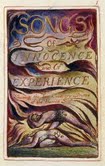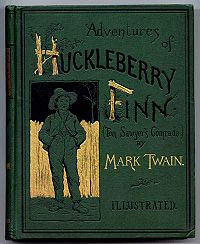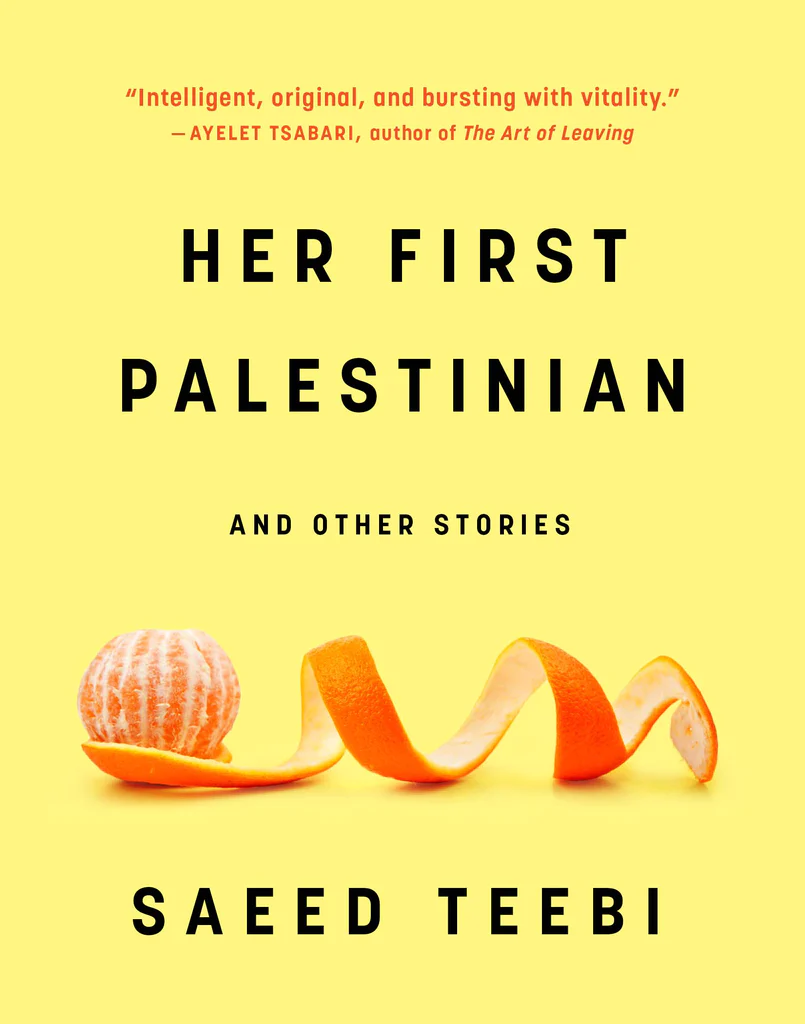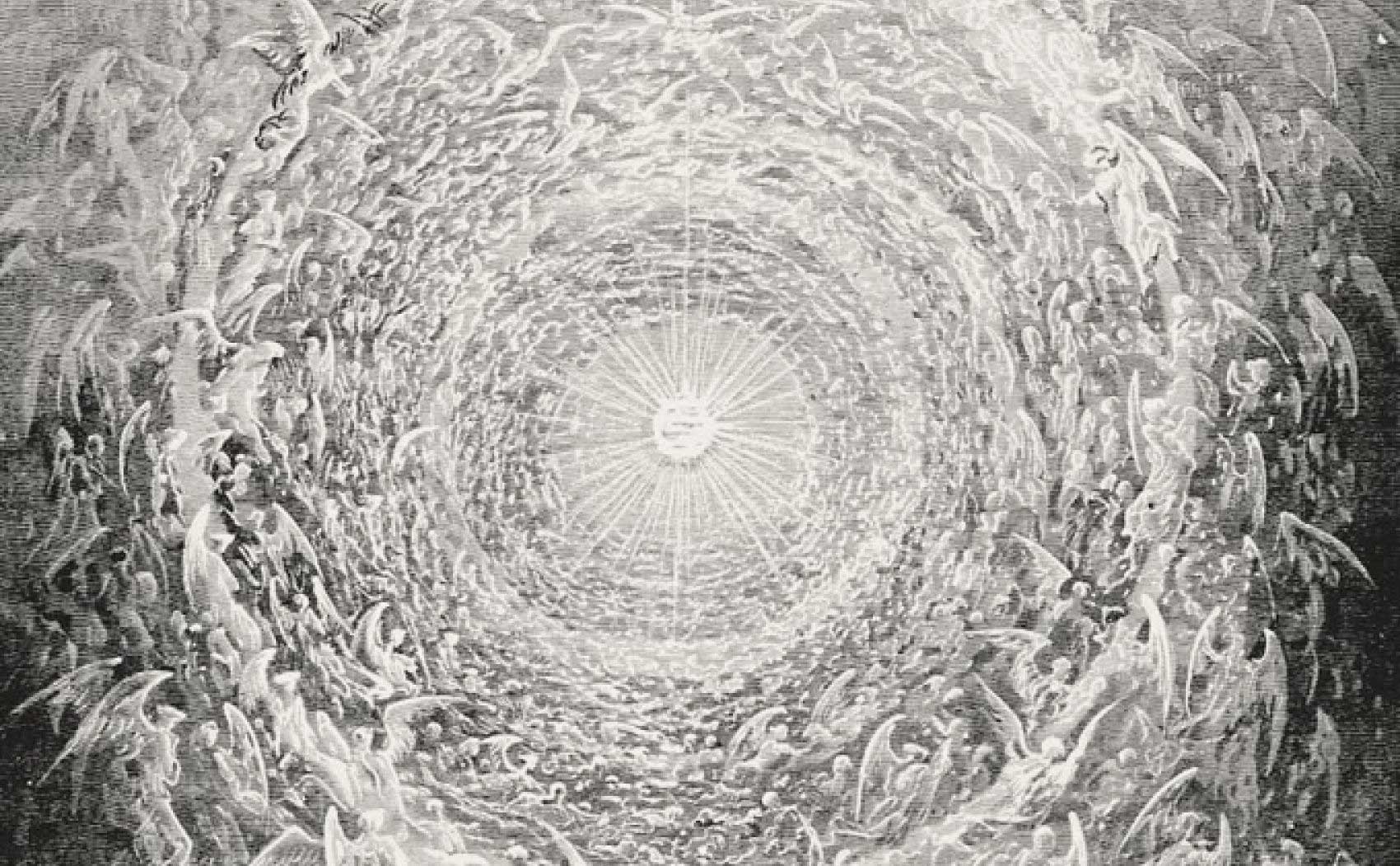Editor’s Note: The following paper was presented at a Conference in Honour of Northrop Frye on the Centenary of His Birth, at Victoria College in the University of Toronto, October 4-6, 2012. Paul Hawkins has previously contributed to Montreal Serai. Because of Frye’s importance to the intellectual history of Canada we think readers will find these remarks to be of interest, and we anticipate that readers might wish to respond in various ways. Responses of all kinds are more than welcome at Serai.
The Teaching of Innocence and of Experience: One Teacher’s Life Journey with Northrop Frye
In writing a paper that has a personal and autobiographical centre, I take my cue from Frye, who said that “criticism is a form of autobiography” (Spiritus Mundi 103), and indeed specifically that this was true of his own criticism. Further, I want to focus on Frye in the classroom, and teaching was of course central to Frye’s life and writing. In declining to speak of his books as research, he refers to them as teaching books and even teaching manuals (The Great Code 50). Finally, this paper bears witness to a small number of epiphanies relating to Frye that I have been privileged to experience—especially my discovery in fall 2002 of his reading of Blake—and Frye’s criticism emerged out of a small number of his own epiphanies.
I remember distinctly my reaction when reading my first Frye, The Well-Tempered Critic, while I was doing my M.A.: “What happened to literary criticism?” I wondered, as I compared his lucid writing and thinking with the tortuous prose that I was having to read in my graduate courses. In an Introduction to Literary Study course the following year, for a brief presentation on a literary history, I chose the Anatomy. The teacher said, “it’s not a literary history” but allowed me to present on it anyway; looking back, I feel proud to have intuited what is often scanted: Frye’s work as genuinely historical and deeply concerned with the social function of literature and of words. When I began teaching in 1994, The Educated Imagination and the co-authored Harper Handbook to Literature were my companions. Since I was the kind of young teacher who asked “what is a poem, a tragedy, a novel?” when first teaching these things, those who recall the opening of The Educated Imagination will find it obvious that Frye spoke directly to my specific concerns. Over my first few years teaching, my first Frye epiphany was finding certain of his categories or pronouncements unforgettable. For instance, when a student would ask, “why do we study literature?” I might remember that there was a great answer in “The Motive for Metaphor,” and turning to it would read again Frye’s quotation from Milton, that poetry is “more simple, sensuous, and passionate” than philosophy or science, or Frye’s own elaboration: that while science starts with the world we see and moves toward the imagination, the arts start with the imagination and move toward the world we see, and that “The world of literature is human in shape, a world where the sun rises in the east and sets in the west over the edge of a flat earth. . . “(“The Motive for Metaphor” 9). Each time I reread these sentences I’d then forget them again (or so I thought). At some point, I realized that Frye was articulating the fundamental: things that we think are obvious and that we already know, until he comes along and makes us realize that perhaps we didn’t. I didn’t remember that Frye’s preferred definition of the canonical was simply as what “won’t go away” (Northrop Frye on Religion 90, quoted in O’Grady 231), and I didn’t yet know of Frye’s deep respect for the book as a medium because of its patience, saying the same thing whenever we turn to it. But Frye was passing his own test of the canonical for me, and I was developing my own respect precisely for the patience of Frye’s own books. I read A Natural Perspective and Fools of Time within the next few years when I began teaching a Shakespeare course.
‘At some point, I realized that Frye was articulating the fundamental: things that we think are obvious and that we already know, until he comes along and makes us realize that perhaps we didn’t.’
My professional life underwent a fundamental change in the fall of 1999, when I began teaching in a small interdisciplinary arts profile for motivated students at Dawson College in Montreal, in what is known as the Reflections profile. Early in my first semester, I pinned a few Frye quotations on the board in my office, including this comment on the ideal university: “It was always an ideal, really, but where you have a small intimate college with students and teachers personally known to one another, you have the possibility of something close to the ideal” (Northrop Frye in Conversation 151). I was enjoying something like this, and as it has happened, it’s been the team-taught seminar on a different theme each semester central to our profile that has also been central to my further explorations of Frye.
Fall 2000, our theme was “Desire,” and for the first time, I taught “The Motive for Metaphor,” alongside Death in Venice and A Streetcar Named Desire, and then used Frye’s discussion of apocalyptic and demonic imagery from the Anatomy to discuss literature as an expression of desire. One student that year honoured me by saying, “that’s the most intellectually exciting English class I’ve ever had,” the credit of course going to Frye. That fall was my second Frye epiphany: 6 years into reading his works (and rereading as I taught using his ideas), I realized that this was not just a phase, but that Frye was a part of me. That Christmas, I read Northrop Frye in Modern Criticism, and a section of Murray Krieger’s essay struck me: how Frye reverses Freud by presenting literature and culture as offering a return to the pleasure principle (11-12). Frye was reworking my sense of my own cultural background, just as Blake had done for him; particularly wondrous for me was the intimation that not all paradises are paradises we have lost. Further, in “Reflections in a Mirror,” Frye discusses the importance of “primitive response” to great literature, the kind of response that students typically bring only to popular culture: “By a primitive response I mean an unmediated response. . .a direct response to the power of literature which is only possible when one stands inside the structure of literature. . . “(141-2). Once again, Frye was offering me a new category—primitive response—and a new dialectic: criticism and direct experience are different, but the point of criticism is to improve direct experience. Ever since, in discussing “primitive response” with students, I often mention Frye’s erasing of the distinction between canonical and popular culture bound up with his rejection of value judgments. Amid so many differences, it’s one strong interconnection of Frye’s work with the criticisms that have succeeded him.
Fall 2001, our theme was “Life Journeys,” and I taught The Adventures of Huckleberry Finn alongside The NFB documentary The Scholar in Society. The university, Frye believes, is the only genuine authority in a democratic society because it’s the only authority that makes you freer when you submit to it. The university`s authority is seen in the appeal to observation and repeated experiment in the sciences and to imagination in the arts, and in the impersonal authority of the subject and of the book. Education is not preparation for life—if so, says Frye, it’s preparation for an anti-climax, since life in the university approaches the ideal of civilized life and is lived much more intensely than afterwards. However, the graduate becomes the university wherever she goes, able to recognize the illusions we mistake for reality and remaining connected to the vision of civilization to which her education has introduced her. Language and recognition of irony are central to freedom: government and society are only interested in our ability to use language passively; the active use of language begins in a student’s sincere effort at expressing his own thoughts in his own words. Too often, students speak in a garbled echo of the way they think their teachers talk and write (and the way teachers do write sometimes, Frye wryly observes) instead of finding their own voice.
Huck Finn embodies this ideal, almost point for point. Huck’s reason, imagination, and critical honesty are apparent immediately in the opening chapter of The Adventures of Huckleberry Finn as Huck struggles to escape religion and school (the actual rather than the ideal university, in Frye’s terms). We see his commitment to the real in his rejection of the falsity of Tom Sawyer’s childish play and to the living in his famous comment on Moses, “I don’t take no stock in dead people” (2). Of course, Huck’s intuitive empiricism serves his primary philosophy: to seek comfort, not merely for himself but also for others, living not according to the rules of a conscience but by his own vision of “whichever come[s] handiest at the time” (101). Indeed, Huck’s concern for Jim’s comfort propels the primary conflict of the novel between Huck and his Southern conscience, which crucially he flees without developing a liberal and Northern one. And finally, there’s Huck’s voice and use of language, the primary pleasure of the book, a fully active and individual language, an ideal instance of the truly educated and critical spirit that liberal education aspires to develop (notwithstanding the “ain’t”s). Indeed, Huck’s reflections on whether or not to turn Jim in, culminating with, “All right, then, I’ll GO to hell” (235) are the highest of high style as described in The Well-Tempered Critic (44-6). Huck’s “university” is fundamentally the raft on the River; the river and his friendship with Jim are the only forces to which he submits, which only increase his freedom by his submission.
A year earlier teaching the Desire seminar, I had learned from Frye to see literature as offering the possibility of paradise regained. Now, Huck Finn was that recreation of Paradise. Further, the classroom is ideally a Paradise, a university, a raft on the River, a place of freedom, a place where students and teachers become free—ever freer—by reading great books, and reading them well. Raft and classroom are both Paradise of our making—rough and ready, never complete or perfect, always to be worked on, repaired, and protected against steamboats and the unreasoning, selfish, and greedy (the Dukes and Kings who travel with us). Our job as readers—students and teachers alike— to connect the books we read and to see them as they are, the total dream of humanity. In my Huck Finn epiphany, the verticals of my thought were all verticals of Frye.
I can now realize that I was already being influenced by Blake without knowing it. And when for fall 2002 our theme was to be “Digging Up the Truth,” I decided to teach Songs of Innocence and of Experience. How does literature dig up the truth? Through the imagination. I knew that the imagination was of central importance to Blake, but not how it might be a key to what Innocence and Experience are. And I decided to pair Blake with Robertson Davies’s Fifth Business. Imagination, myth, and magic would be the connections. And then, fortuitously, I discovered a thin Frye book I’d never even heard of, Creation and Recreation. Early in, he cites Wilde’s “The Decay of Lying” as source of one of his own central ideas: “man does not live directly and nakedly in nature like the animals, but within an envelope. . .called culture and civilization” (5), the verbal part of this envelope being mythology (7). Mythology, the insulating envelope, is what Wilde means by lying, “or turning away from the external world” (8). I didn’t yet know where this was going, but I decided to add “The Decay of Lying” to my syllabus, in between Blake and Davies. Then in the third chapter, the book reaches its climax with a discussion of Blake—Blake the turning point between the dominance of the first approach to creation, where culture is God’s creation, and the second, culture a human creation:
The first person in the modern world who understood that the older mythological construct had collapsed was William Blake. He also, though without direct influence, set up the model for all the nineteenth century constructs [of Rimbaud, Marx, Schopenhauer, and Freud]. . . where cultural values float on a perilous sea. In Blake we begin with the Songs of Innocence, which reflect a child’s view of the world, in which the world is controlled by a benevolent providence, makes human sense and responds to the human need for love and peace, and was probably made in the first place for the child’s own special benefit. As the child grows older, he enters the world of ‘experience,’ and learns as an adult that the world is not the least like this. At that point, his personality splits in two. His conscious waking adult self, which Blake calls Urizen, struggles to adapt itself to what for it is the real world; his childhood vision, which Blake calls Orc, is driven underground into what we call the subconscious, where it forms a boiling volcanic world of mainly sexual and largely frustrated desire. (Creation and Recreation 55-6)
From this point of departure and then a reading specifically of the first five chapters of Fearful Symmetry, I derived a brief sketch of Innocence and Experience that guides my introduction of students to the Songs. The handout summarizes these ideas as “bullet points” that students can apply to different poems, with notes on their application to some of the poems we discuss in the first class on Blake. I realize that I run the risk of sounding quite definitive (and am perhaps more confident than I should be in naming a 3rd state, Vision). I address this danger, emphasizing that my simple scan of Innocence and Experience should be seen as a point of departure and not a final word; if I’m in a dogmatic mood on a given day or the students unresponsive, I can certainly start sounding like something horrible out of Blake’s Experience. Frye himself said that until he tested his ideas on his students he couldn’t believe them. In turn, I perhaps simplify (I hope not oversimplify) so that I can understand them and then transmit them to my students.
My sketch corresponds (I think) to Blake’s double vision. When first drawing this up, I didn’t really understand that Blake had not just a double, but a threefold, and a fourfold vision. I’m not sure I yet understand why we need three and four. Consequently, I was relieved to read this past winter that “the double-double or fourfold vision. . .is still essentially twofold” (The Double Vision 23). Loving Frye, I know that his central insights are simple; yet he has the reputation (not undeserved) of being difficult. Sometimes, people obstinately refuse to credit the simplicity. But isn’t it true that Frye, like Blake before him, had an intellectual power that condemned him also to some obscurity? Isn’t it ironic that Blake, against mystery of any kind, mystified so many for so long (including major poets and critics), and would so still were it not for Frye? Frye succeeded in unravelling Blake, and aren’t we all here engaged in unravelling Frye—for ourselves, for our students, and for an often (or yet again) uncomprehending, hostile, or worse, indifferent critical world? Frye says that Blake probably wouldn’t have been as obscure if he’d lived 300 years earlier, because the Renaissance synthesis of Platonism and Christianity affords an analogue of Blake’s own vision (Fearful Symmetry 150). He would then have been understood. Likewise, Frye might never have seemed odd at all were we now commemorating his bicentenary, as I think has been observed. What a great friend or correspondent Frye might have been with his then exact contemporary Dickens, and what an effect on Canadian history and culture if the influence of this Methodist circuit preacher and critic had gestated in us for another 100 years?
I can identify precisely the life-changing moment for me with the whole of Frye, in one of several short passages in Fearful Symmetry behind my summary—and even more, in one or two electrifying phrases. Probably this exact passage has had that effect on others, since only recently did I read it cited as summarizing Frye’s whole neo-romantic argument about poetic imagination:
Nearly all of us have felt, at least in childhood, that if we imagine that a thing is so, it therefore either is so or can be made to become so. All of us have to learn that this almost never happens, or happens only in very limited ways; but the visionary, like the child, continues to believe that it always ought to happen. We are so possessed with the idea of the duty of acceptance that we are inclined to forget our mental birthright. . . .[I]magination creates reality, and as desire is a part of imagination, the world we desire is more real than the world we passively accept. (Fearful Symmetry 27, quoted in Salusinszky 28).
Common sense—as students often relay it—says that we all lose our Innocence, and that Innocence is ignorance (of course, for Blake, “Innocence dwells with wisdom but never with ignorance”). Simply and practically, Blake challenges many students’ preconceptions about Innocence—and I’ve spoken about Blake enough to colleagues to know that it’s not only a student preconception—and instead suggests that Innocence cannot and should not be truly lost, it gets buried underground in us, and it must be dug up and let out.
From the opposition of science and art, to the Ur-story of literature as the loss and regaining of identity, to the separation of the apocalyptic from the demonic, to the ideal university (Huck on his raft) – my knowledge of Frye, literature, and teaching has organized itself around Innocence and Experience: the Stage of Romance and the Stage of Precision in education (in Whitehead’s words), play and work (“play is that for the sake of which work is done, the climactic Sabbath vision of mankind” [Divisions on a Ground 88])), freedom and necessity (“you know what you’re doing only when what you want to do and what you have to do are exactly the same” [Northrop Frye in Conversation 99]), reading detective stories in bed and reading to improve one’s mind (from the opening of A Natural Perspective [1-2]), primitive response to literature and the structure of criticism, the reality of fantasy and the illusion of reality.
Since the discovery of Blake in fall 2002, I have continued to read and reread Frye and use his ideas in the classroom, and I am still excited by what he imparts. As Frye’s castaway will say in moments of contentment, I, too, say, “I like this.”
Appendix
A handout from an Interdisciplinary Seminar in the Reflections profile,
Dawson College, Montreal
Instructor: Paul Hawkins
phawkins@dawsoncollege.qc.ca
514-931-8731 ext. 1503
Digging Up the Truth: English section (A Summary of Week #1)
A way of approaching Songs of Innocence and of Experience
Where in the individual poems do you see the voice (or perspective) of innocence, of experience, or of vision? Consider voice, author, reader: who offers which perspective?
Innocence
–“everything is as it should be”
–the child-like perspective that the world is perfect (is Paradise), no matter what is actually happening
–strength of this state: innocence is any moment when our IMAGINATION (which is essentially our ability to see “the world as it should be”) is most active; and IMAGINATION is ALL to Blake
–the limitation of this state: can’t really see “what is”; is naïve and gullible; can easily be conned, manipulated, oppressed
Experience
–“everything is not as it should be”
–“the way things are is the way they should be—get used to it”
–the state in which you see “what is”; at its extreme, experience can be imprisoned in “is,” unable to see beyond
–the voice of experience is often the voice of rules, of authorities in society
–strength of this state: can see “what really is” in the world, and can recognize the negative when it sees it
–limitation of this state: can’t really see “should be”
Vision
–can see what is
–can see beyond to “should be”—to a world where desire is fulfilled
–the state where the individual realizes her divinity and applies imagination in the creation of paradise here and now
Sources (for the perspective on Innocence, Experience, and Vision):
Cayley, David. Northrop Frye in Conversation. Concord, Ontario: Anansi, 1992. [pages 100-102]
Frye, Northrop. Creation and Recreation. Toronto: U of Toronto P, 1980. [pages 55-7]
—. Fearful Symmetry. Princeton, N.J.: Princeton UP, 1947. [pages 1-29]
Works Cited
Cayley, David. Northrop Frye in Conversation. Concord, ON: Anansi, 1992.
Frye, Northrop. A Natural Perspective: The Development of Shakespearean Comedy and Romance. NY: Columbia UP, 1965.
—–. Creation and Recreation. Toronto: U of Toronto, 1980.
—–. Divisions on a Ground: Essays on Canadian Culture. Toronto: Anansi, 1982.
—–. The Double Vision: Language and Meaning in Religion. Toronto: U of Toronto P, 1991.
—–. The Educated Imagination. Concord, ON: Anansi, 1963.
—–. “Expanding Eyes.” In Spiritus Mundi: Essays on Literature, Myth, and Society. Richmond Hill, ON: Fitzhenry & Whiteside, 1976. 99-122.
—–. Fearful Symmetry: A Study of William Blake. Princeton: Princeton U, 1947.
—–. The Great Code: The Bible and Literature. NY: Harcourt, 1982.
—–. Northrop Frye on Religion. The Collected Works of Northrop Frye. Vol. 9. Ed. Alvin A. Lee and Jean O’Grady. Toronto: U of Toronto P, 1999.
—-. “Reflections in a Mirror.” In Krieger, ed. 133-146.
—–. The Well-Tempered Critic. Bloomington: Indiana UP, 1963.
Hawkins, Paul. “Teaching Shakespeare with Northrop Frye and Harold Bloom.” English Studies in Canada 37.2 (June 2011), 131-6.
Krieger, Murray, ed. Northrop Frye in Modern Criticism: Selected Papers from the English Institute. New York: Columbia UP, 1966.
O’Grady, Jean. “Revaluing Value.” Northrop Frye: New Directions from Old. Ottawa: U of Ottawa, 2009. 226-246.
Salusinszky, Imre. Criticism in Society: Interviews with Jacques Derrida, Northrop Frye, Harold Bloom, Geoffrey Hartman, Frank Kermode, Edward Said, Barbara Johnson, Frank Lentricchia, and J. Hillis Miller. New York: Methuen, 1987.
The Scholar in Society: Northrop Frye in Conversation. Dir. Donald Winkler. National Film Board of Canada, 1984.
Twain, Mark. The Adventures of Huckleberry Finn. NY: Penguin, 1985.













